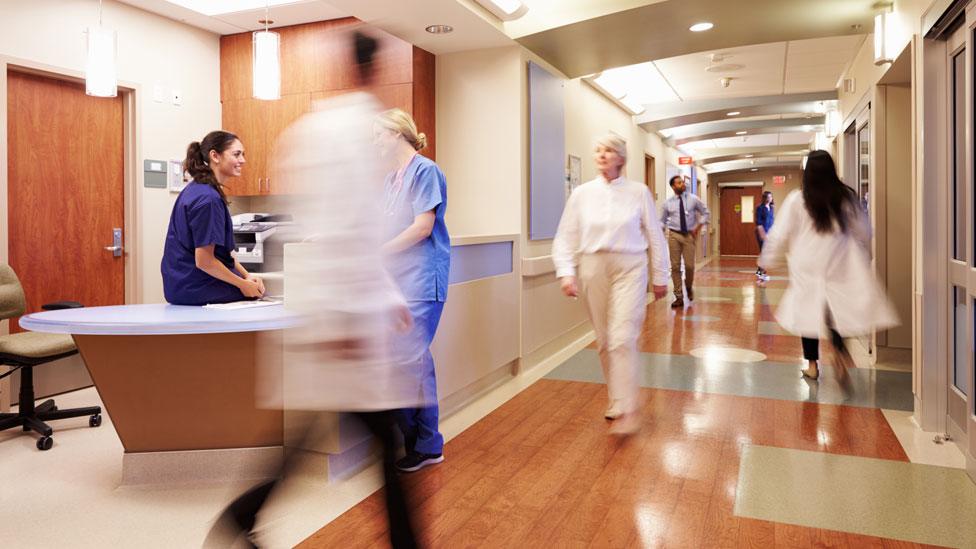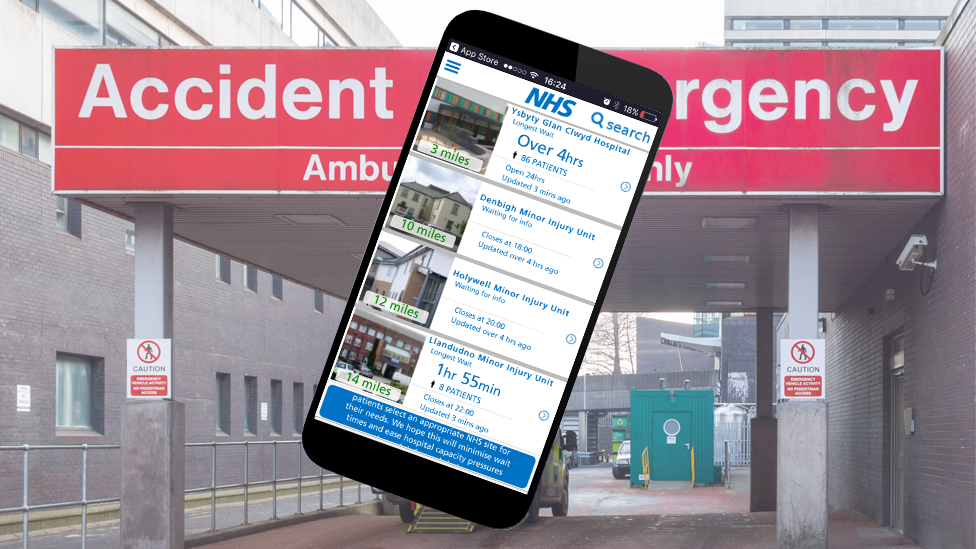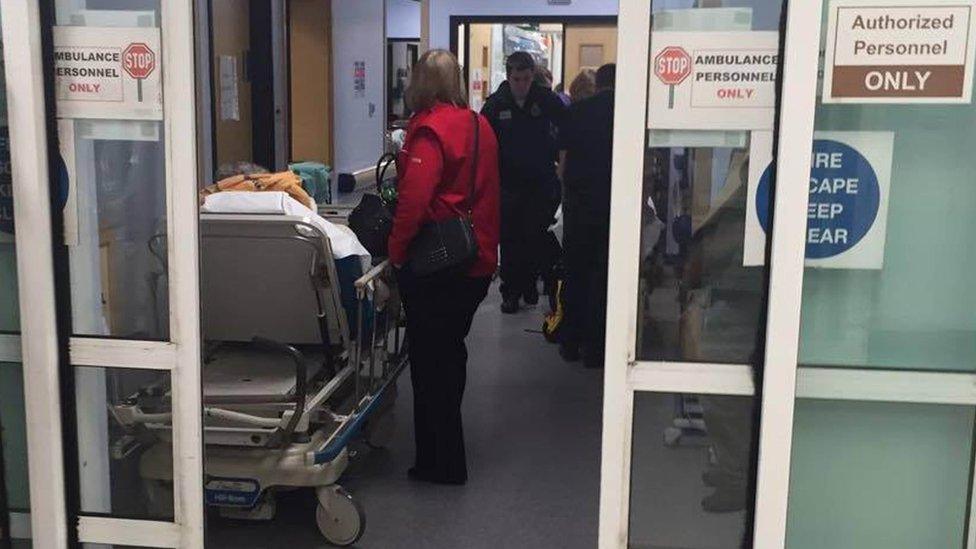Drop in longest waits for A&E admission in Wales
- Published

Significantly fewer patients spent more than 12 hours in A&E departments in Wales in February, compared to the month before, the latest figures show.
In February, 2,977 patients spent more than 12 hours in hospital emergency units before being admitted, transferred or discharged.
That is down 25% on the number of patients facing longer waits in January.
However, the Welsh Government's target is that nobody should wait that long.
The figures also show, external there has been a slight improvement in performance against the four hour wait target - with 80.8% of patients admitted, transferred or discharged within that time in February, compared to 79% in January.
The target of 95% has never been met in Wales.
On both measures the statistics show accident and emergency departments are performing better than the same time last year.
Looking at individual hospitals, Morriston in Swansea had 538 patients waiting more than 12 hours in February - but Wales' largest A&E in Cardiff had only 59 patients waiting that long - the fewest number in Wales of major units.
NHS Wales' chief executive warned in January that the service was facing "exceptional pressures".
Andrew Goodall said hospital emergency units and the Welsh Ambulance Service had experienced some of their busiest ever days this winter.
But the figures for February suggest the pressures have eased somewhat since the beginning of the year - with around 5,000 fewer attendances in urgent care units in February compared to the month before.
The Welsh Government said the latest statistics were "encouraging" and it would continue to monitor the situation.
A spokesman added: "Careful joint planning between local health boards, the Welsh Ambulance Service, local authorities and other key partners, coupled with an additional £50m Welsh Government investment has largely helped to manage significant peaks in both the numbers and complexity of patients who access A&E services over the winter period."
- Published10 January 2017

- Published11 January 2017

- Published18 January 2017
